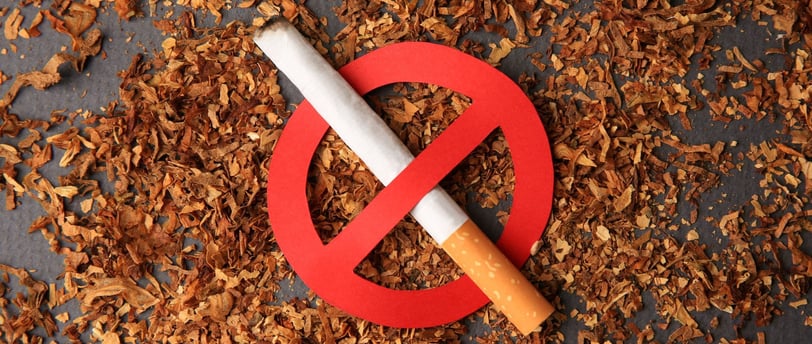How to Quit Smoking
A Step-by-Step Guide to a Smoke-Free Life
4/3/20242 min read


Quitting smoking is one of the most challenging journeys many will undertake, but it's also one of the most rewarding. Every year, millions attempt to break free from tobacco's grasp, drawn by the promise of better health, improved quality of life, and a significant decrease in risk for numerous diseases. Here's a comprehensive guide to help you or someone you care about quit smoking for good.
Understand Your Why
The first step in your quit journey is understanding your personal reasons for quitting. Whether it's for your health, family, or financial savings, your "why" will be your anchor, keeping you grounded and motivated when the going gets tough.
Set a Quit Date
Choose a quit date a few weeks away. This gives you time to prepare without losing your motivation. Mark it on your calendar, and let your friends and family know. Their support will be invaluable.
Identify Your Triggers
Triggers are specific situations, feelings, or activities that make you crave a cigarette. Common triggers include stress, drinking coffee, or finishing a meal. Recognizing these triggers can help you develop strategies to cope with or avoid them.
Develop a Quit Plan
A quit plan is tailored to your specific needs and may include:
- Nicotine Replacement Therapy (NRT): Products like gum, patches, or lozenges can help reduce withdrawal symptoms.
- Prescription Medications: Certain medications can help you quit by reducing cravings and withdrawal symptoms.
- Support Programs: Consider joining a support group or a program designed to help smokers quit. The sense of community can be incredibly encouraging.
Practice Stress Management
Stress is a major trigger for relapse. Find alternative ways to manage stress, such as exercise, meditation, deep breathing, or engaging in a hobby you love.
Stay Active
Physical activity can help reduce nicotine cravings and ease some withdrawal symptoms. When you feel the urge to smoke, go for a walk, hit the gym, or do a quick home workout instead.
Eat a Balanced Diet and Stay Hydrated
Quitting smoking can affect your metabolism, leading to weight gain for some. Focus on eating a balanced diet and drinking plenty of water to help manage your weight and keep cravings at bay.
Celebrate Your Milestones
Set milestones and celebrate them without using cigarettes as a reward. Treat yourself to something special with the money you've saved from not buying tobacco.
Manage Relapse
If you slip up, don't give up. Many successful quitters have made several attempts before finally quitting for good. Analyze what led to the relapse and adjust your plan to better handle that situation in the future.
Seek Professional Help
Don't hesitate to seek professional help. Doctors, counselors, and quitline coaches can provide guidance, support, and resources to increase your chances of success.
Quitting smoking is a journey of self-discovery, resilience, and transformation. It's about reclaiming control over your health and your life. Remember, every step forward, no matter how small, is a step toward a healthier, smoke-free life. Embrace the challenge, and don't lose sight of your goal. Your future self will thank you.
Disclaimer:
This blog post is for informational purposes only and is not a substitute for professional medical advice, diagnosis, or treatment. Always consult your healthcare provider before making any changes to your health regimen, including attempts to quit smoking. The strategies mentioned may not suit everyone, and individual needs should be considered. Information may become outdated over time, so always verify the latest health guidelines.
